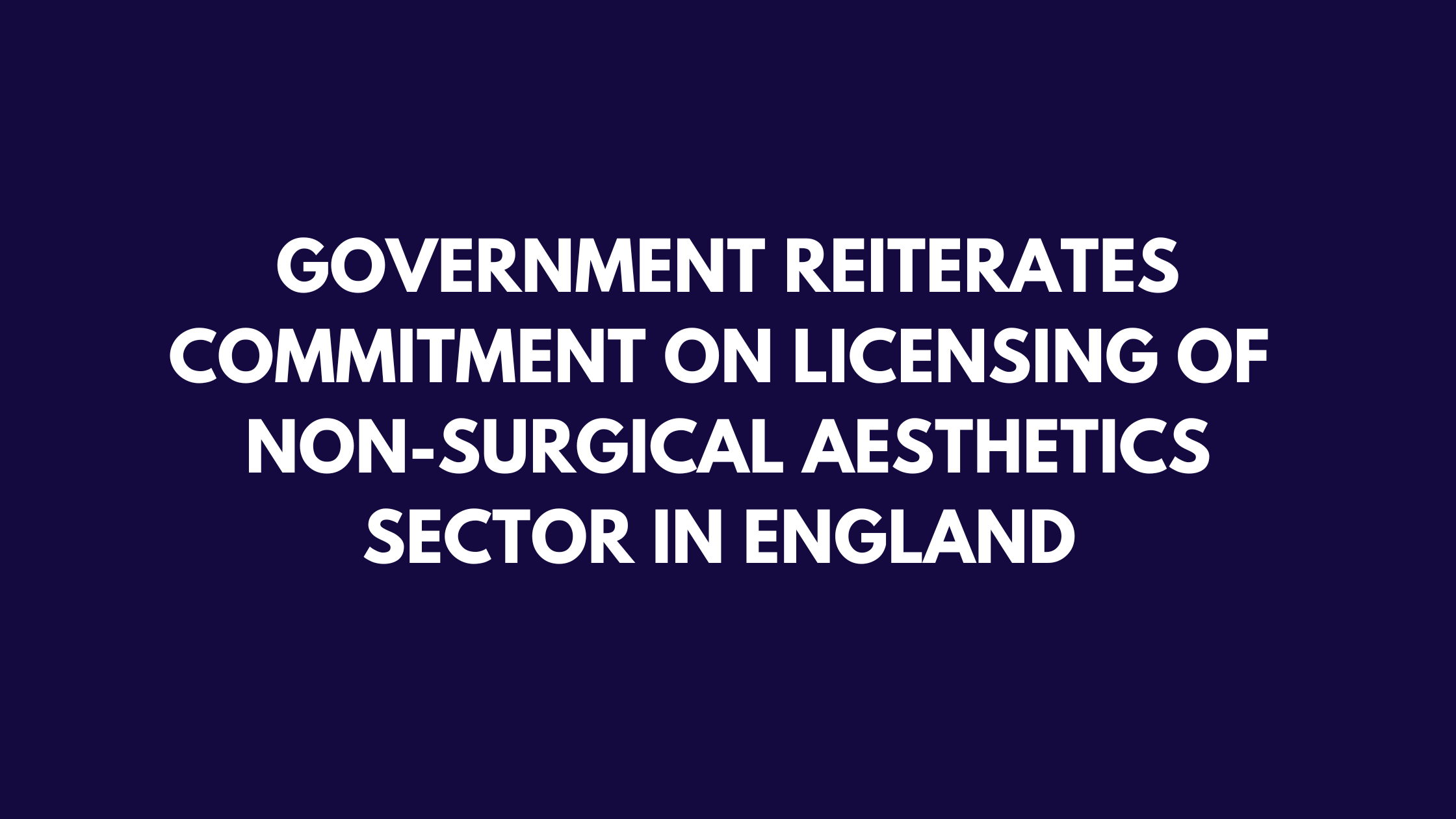The British Beauty Council, and other stakeholders, have received assurance from the UK Government that it’s committed to the licensing of the non-surgical aesthetics sector in England
After submitting a joint letter on behalf of the aesthetics industry to the Department of Health and Social Care, the Council and the Chartered Institute for Environmental Health (CIEH) received a response outlining how the department is designing and implementing a new system of licensing for the non-surgical cosmetic industry.
This comes after the Government made its initial commitment in March 2022 to bring forward future regulation to protect patient safety by making it an offence for someone to perform these cosmetic procedures without a licence.
In a response last week, the Minister responsible for taking forward this issue, Maria Caulfield, Parliamentary Under-Secretary of State for Mental Health and Women’s Health Strategy, stated that “departmental officials will work as quickly as possible to introduce the licensing scheme and will consider all the important areas.”
In their correspondence, the supporting lobbying groups set out key priorities for the Government to action in its now-approaching licensing. These are:
- The design and implementation of a national licensing scheme for all premises where licenced procedures are conducted as well as practitioners of non-surgical cosmetic procedures to ensure that all those who practise invasive procedures are competent and safe for members of the public (as proposed in Paragraph/Clause 180 of the Health and Care Act, 2022).
- A requirement for all practitioners to hold adequate medical insurance in order to provide non-surgical cosmetic procedures.
- The development of official guidance on the training and qualification expectations for all practitioners, including knowledge and application of infection controls and first aid training.
- The development of a system for the effective recording of adverse incidents and public awareness raising to ensure that all cases that go wrong can be tracked and improvements to safety made as a result. Members of the public need better tools and knowledge in order to protect themselves.
Minister Caulfield set out the Government’s plans for ensuring standards for adequate training, insurance, first aid, and premises in her reply. She also affirmed the development of future licensing to suit the ever-developing industry, saying: “We know this is a fast-moving sector, and officials will consider how best to future-proof the regulations so that new and emerging treatments are captured by the scheme.”
It is anticipated that the Government will outline its timetable for the implementation of the new licensing scheme in England within the coming weeks as part of its wider response to the Health and Social Care Committee’s Inquiry Report on body image.
Victoria Brownlie, Chief Policy Officer at the British Beauty Council said:
“It’s encouraging to hear that the Government remains committed to bringing forward licensing of non-surgical cosmetic procedures. With almost a million botulinum toxin or cosmetic filler injections now being administered each year, regulation is needed more than ever to protect consumers seeking these kinds of non-surgical treatments. We need to create a level playing field to give peace of mind that adequate training, hygiene and safety standards come as standard when having aesthetics treatments – raising the reputation of the sector and professionalising the industry as a whole.”
Prof. David Sines CBE, the Chair of the JCCP said:
“We are reassured by the response received from the Parliamentary Under Secretary of State to the key issues raised in our letter of representation to the Secretary of State and to matters raised directly with the Health and Social Select Committee in recent months which have also been supported by Jeremy Hunt and his colleagues.
“We very much look forward to continuing our engagement with the Government and health care regulators during the forthcoming months to realise the key objective of embedding patient safety and public protection for members of the public who elect to engage with non-surgical procedures within the context of national enforceable legislation.”
Ross Matthewman, Head of Policy and Campaigns at the Chartered Institute for Environmental Health, said:
“We are delighted to see the Government firmly commit to bringing forwards the new licensing regime for non-surgical aesthetics in England. This is an area that we and our partners have campaigned tirelessly on culminating in the amendment to the Health and Care Act allowing the Secretary of State for Health and Social Care to create such a scheme.
Creating better regulation of this industry is vital if we are to ensure consumer safety and create a genuine level playing field for practitioners. We look forwards to working closely with the Government on the next steps.”




